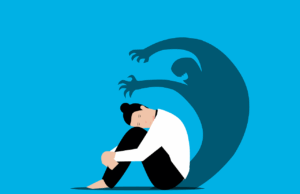Mental health: the path to overall wellbeing
 We have heard the term ‘mental health’ quite often during the last two years as the pandemic affected the whole world. But, what does it mean? It is basically our emotional, psychological and social well being. It affects how we think, feel, and act. It also helps to determine how we handle stress. Mental health is important at every stage of life, whether it is a school-going child or an elderly person.
We have heard the term ‘mental health’ quite often during the last two years as the pandemic affected the whole world. But, what does it mean? It is basically our emotional, psychological and social well being. It affects how we think, feel, and act. It also helps to determine how we handle stress. Mental health is important at every stage of life, whether it is a school-going child or an elderly person.
As a mental health promoter, I can tell you that mental health is closely tied to physical wellbeing as well. In fact, the very definition of health acknowledges the relationship between physical, mental, and social wellbeing meaning that the three are intertwined. The mind has more power over body than we think. When we do not care for our mind, it negatively impacts our physical health. There are many examples for this. For instance, positive mental health can help one recover faster from illness and often, patients with serious illnesses like cancer benefit from receiving counseling and emotional support. Additionally, it plays a role in the quality of sleep – the more calm you are, the more sound your sleep will be. Mental health also affects the energy level of a person. Mood disorders like depression or anxiety can leave one feeling lethargic, fatigued, or unable to engage in daily life. Finally, poor mental health makes a person prone to developing poor lifestyles such as alcohol and drug abuse. This also has an impact on physical health.
Today, the most common mental health issues in India are stress, anxiety disorders, depression, and insomnia. Given this scenario, it is more important than ever that we become aware of mental health so that we are better able to support those in our lives who struggle with the debilitating effects of mental health conditions.
Now, who can be a mental health promoter? Anyone can be one provided they want to promote awareness of mental health, are willing to stand up, talk about it and destigmatize it, and are ready to listen and understand someone’s perspective without judgement when someone needs to talk. Parents, teachers, friends, or anyone who wishes to do these things can be a mental health promoter. The ultimate goal is to raise mental health awareness, help people understand symptoms, find professional treatment, and most importantly, break the stigma that leaves people suffering in secret.
So how can we improve our own mental health? There are multiple strategies that can be used alone or in combination with each other.
- First and foremost, value yourself. Treat yourself with kindness and avoid self-criticism. Understand your personality and the needs of your body, and engage in hobbies that help you feel good about yourself.
- Take care of your body. Eat balanced meals, avoid deleterious habits such as smoking and drinking alcohol, stay hydrated, exercise your body, and try to sleep at least six hours each night.
- Surround yourself with people who uplift you. Try to be curious with new people and be open with your loved ones. Use avenues such as support groups, classes, or clubs to meet like-minded people and explore new horizons.
- Give yourself to others. Volunteer your time and energy to help someone in need. Engage in constructive activities that make you feel fulfilled and happy. This is also a great way to meet new people who share your values.
- Learn how to deal with stress. Stress is an unavoidable part of our life so it is better to develop effective coping mechanisms that help mitigate its effects. Breathing exercises, walking, playing with pets, and writing a gratitude journal are some examples of good coping mechanisms. Developing these skills help in the long run as well. Additionally, smiling and seeing humour in daily life is extremely important. Research shows that laughter boosts the immune system, eases pain, and reduces stress.
- Set realistic goals. Decide what you want to achieve personally and professionally, and break down these goals into achievable steps and targets to achieve these goals. Be as realistic as possible and reward yourself every time you achieve a target.
- Break the monotony of life. Routines make us more efficient and enhance our feelings, but sometimes little changes in routine rejuvenate us. Take time out to break your daily routine once in a while.
- Avoid alcohol and other drugs. While these substances may make you feel good for a short while, they end up having a depressive impact when the effect wears off. This cycle often leads to addiction. Keep alcohol use to a minimum and avoid other drugs.
- Lastly, get help when you need it. Seeking help is sign of strength and not a weakness. Treatment is effective and has a long-lasting impact.
Remember, mental health is just as important as physical health and one cannot exist without the other. Be aware and lead a happy life!
Arati Hegde
(NLP Practitioner, Life Coach, Mental Health Promoter)
